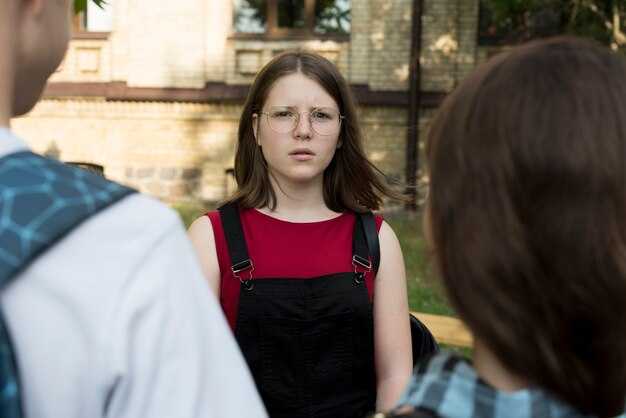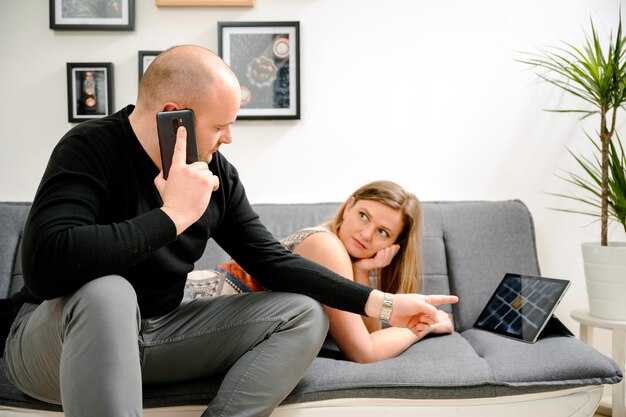Why is it that when he withdraws you instinctively squeeze tighter? Why does his silence sometimes feel oddly familiar or even comforting? Here’s the uncomfortable fact: those sensations you mistake for love aren’t love at all. They are survival responses – the parts of you that have always had to endure intense emotions, that love fiercely and cling deeply, but which get triggered when hope and fear braid together inside you. They switch on at the wrong moments, not because you consciously chose them, but because they became the default. So you find yourself drawn to a man who keeps you at arm’s length, who is moody or hot-and-cold, who vanishes just long enough to leave you unsteady. And your nervous system says, “Oh — this feels like home.” This isn’t a metaphor: that push–pull dynamic is a trauma imprint. It’s your brain and body repeating an old pattern formed long before you knew what healthy love looked like. It’s not your fault, but it is yours to address now. This is what people mean by eroticizing abandonment: being left, or fearing being left, triggers the machinery that feels like falling in love. That’s also why some men seem to have a sixth sense for finding you, and why the whole thing feels so bewildering when it’s happening. If you don’t interrupt these trauma-driven loops, they will quietly steer your life, tricking you into pursuing people who can’t meet you with real care. Let’s unpack it. You can often sense emotional unavailability quickly — perhaps not with a conscious thought, but your body knows. You get tense, you work hard to pull him in. He may charm you and pay attention at first, then retreat: he grows distant, dodges conversations about feelings, disappears when you seek reassurance, or oscillates between warmth and cold. Instead of stepping back — the emotionally healthy move when someone behaves like that — your attachment wound accelerates: you lean in, try harder, attempt to guess and become what you imagine he wants. Anxiety, pushiness, fixation, even obsession can follow. Those sensations don’t equal love; they are responses to intensity. Why does intensity short-circuit the common-sense alarm about someone who clearly can’t reciprocate? Because if dependable love was unreliable or scarce in childhood, you likely learned to overfunction to maintain safety. Maybe you tiptoed around caretakers’ moods, became the peacemaker or the achiever, the one who fixed things for a scrap of attention or approval. Now, when affection is withheld, that old script fires: prove your worth, be patient, be desirable, be low-maintenance, and maybe he’ll stick around. But you’re answering ghosts of the past, not the actual person in front of you. You’re seeing potential rather than the person who actually is. That huge unmet need for love lights up most intensely when things are uncertain and unsafe — and in modern dating culture, where hooking up is often the norm, folks with attachment wounds are at a particular disadvantage. Physical intimacy activates attachment biology and we can’t always control how that affects us. The last thing an attachment wound needs is repeated activation with no reciprocation, because operating from wounded attachment pushes others away. Hiding feelings or pretending to be the cool, unbothered partner won’t make you happy; it’s another form of abandoning yourself. Every time you chase someone who keeps you at a distance, you reinforce the false rule that being ignored is normal. That’s the wound speaking. Emotionally unavailable people who know how to breadcrumb — just enough contact to keep you invested — will reflect that wound back at you, making you feel as if you are the problem: too needy, too much. But you are asking for very basic things — consistency, honesty, emotional presence — not unreasonable or high-maintenance requirements. If you never experienced those basics, they feel unfamiliar and unsafe, which is why trauma leaves the attachment center vulnerable to attaching quickly and makes leaving feel impossible. The result can be years spent in a relationship that doesn’t nourish you. These are classic ways early trauma shapes attraction, partner choice, and relationship dynamics. If you want a practical checklist of common signs that trauma may be influencing your patterns, there’s a free PDF available in the top line of this video’s description. It won’t diagnose anything; it’s a prompt to help you notice whether you see yourself in these patterns and to clarify what your current healing priorities might be. Recognizing that certain symptoms are normal for someone who grew up the way you did can soothe the “am I broken?” question and make it easier to start changing things. Many of these symptoms can be healed, and once you know what they are you can begin working on them — progress is often faster than people expect. Healing starts by recognizing that attraction isn’t always a signal of what’s healthy; frequently it signals what’s familiar, what your nervous system was coded to seek before you could even understand love. The work is to begin unraveling those maladaptive attraction patterns so new, healthier habits can form. “Love at first sight” or “trust your gut” aren’t reliable guides when perception has been warped by neglect or abuse. When trauma is present, time is your ally. This isn’t about shutting your feelings down or shaming yourself for having them; it’s about getting curious, noticing recurring patterns, stopping the romanticization of dysfunction, and asking hard questions: why do I chase people who won’t meet me halfway? Why does distance feel like love? Why does chaos masquerade as chemistry? Why does rejection trigger an overpowering sense of falling in love? Those are misfires rooted in past hurts. You may notice that the moments of coldness or withholding stir up more intensity in you than moments of kindness and presence — that falling for abandonment is not love but a kind of emotional conditioning, a neurochemical loop similar to trauma bonding. The cycle of cold then intense attention produces dopamine surges — not because the connection is healthy, but because relief from abandonment reads to the brain like a reward: “Phew, he’s not leaving.” If you learned to seek that relief, it becomes dangerously compelling, and that’s what keeps you hooked. Sometimes the men involved are capable of some affection but are limited by their own attachment wounds: when things get intense they withdraw, triggering the very responses that bond you to them. It’s not moral failure so much as old wounds interacting — and once those wound-based triggers meet, a trauma bond can form. Breaking this cycle requires someone to step out of the trance. That someone can be you. If you want help getting free of this loop, there are structured supports for people with childhood PTSD that teach how to stop gravitating toward unavailable partners and lay out concrete steps to redirect your life away from repeated heartbreak. Information about a dating and relationships course addressing these exact issues is provided as the second link in the description, and further resources are collected at crappychildfairy.com for anyone who wants to explore options. As healing progresses, you stop misreading anxiety as intimacy, stop treating silence like a test, and stop excusing absence, selfishness, or emotional unavailability. You stop trying to win love from someone who doesn’t show up emotionally, and instead you begin to build a life with people who are actually present. One truth few mention is that emotionally available love often feels underwhelming at first if you’re coming off the adrenaline of a trauma bond. Stable love is calm: it doesn’t spike your adrenaline or keep you guessing. If you’re unused to that, you may be tempted to label it boring — what you’re missing is chaos, danger, the chase. But that calm is not emptiness; it’s safety, openness, freedom from the old rule that love must be painful to be real. Over time, re-regulating the nervous system and practicing connection in all kinds of relationships can heal the mysterious pull toward the wrong people. Repeatedly choosing unavailable partners usually makes the pattern worse; with committed, consistent work on your wounds, attraction often shifts naturally. Kindness becomes attractive rather than weak, predictability becomes safe rather than dull. Peace can be mistaken for emptiness until it’s experienced enough to become familiar; then it becomes liberation. To stop falling for men who cannot give real partnership, you must first become emotionally available to yourself: stop abandoning yourself when insecurity arises; stop chasing people who don’t choose you; stop handing your worth to someone else. Learn and use practices that soothe the nervous system and clear the mind; develop strategies to stay regulated during conflict so you don’t automatically lash out or spiral when old triggers fire. Healing looks like being able to pause instead of react, to reflect, and to choose a different response. That doesn’t mean you’ll never feel pulled toward the wrong person again — attraction can be unpredictable — but it does mean you won’t act on that pull the way you used to. You may recognize that something feels like home, but you refuse to live there. You can create a new normal where love is safe and you are not constantly trying to earn affection. It takes courage and practice, but the hardest part is already behind you: surviving a childhood that taught you to accept emotional scarcity as love. You don’t need to keep proving your worth; you have always been worthy. The next time someone pulls away and the urge to chase wells up, breathe, and remember: this reaction is your body replaying the past. It’s not about him. You no longer have to follow that script. Choose peace. Choose real love. Allow yourself to sit with brief discomfort until it passes, and then step into the freedom of a stable, deeply connected relationship — one that doesn’t hurt, confuse, or make you beg. Real love shows up, it stays, and it grows. If you’ve never had that, let this be a beginning rather than the next heartbreak: refuse to return to what harmed you, don’t pursue what ignored you, and instead walk toward what heals, calms, and honors your heart, strength, and worth. You are not here merely to survive love; you are here to receive it. If this message resonated, there are related videos to explore in the description. One final question to consider: does the fear of abandonment or of being alone cause you to remain in unhealthy relationships — staying far past the moment you wanted to leave because the thought of leaving felt unbearable?



 Γιατί οι συναισθηματικά απρόσιτοι άνδρες μοιάζουν σαν σπίτι">
Γιατί οι συναισθηματικά απρόσιτοι άνδρες μοιάζουν σαν σπίτι">

 Why Your Ex Will Never Replace You (And Here’s Proof) | Avoidant attachment style">
Why Your Ex Will Never Replace You (And Here’s Proof) | Avoidant attachment style">
 5 Shocking Reasons You Shut Down Emotionally (That No One Told You)">
5 Shocking Reasons You Shut Down Emotionally (That No One Told You)">
 Validating Pain in the Past">
Validating Pain in the Past">
 When the Avoidant Comes Back: Decoding Their 4 Texts (And How to Respond to Reclaim Your Power)">
When the Avoidant Comes Back: Decoding Their 4 Texts (And How to Respond to Reclaim Your Power)">
 Their Actions Have Consequences.">
Their Actions Have Consequences.">
 Τι Συμβαίνει Όταν Παραμελείτε έναν Άνθρωπο που Ευχαριστεί τους Άλλους; || Καταβεβλημένος Επιδιώκτης">
Τι Συμβαίνει Όταν Παραμελείτε έναν Άνθρωπο που Ευχαριστεί τους Άλλους; || Καταβεβλημένος Επιδιώκτης">
 Σταματήστε τη Ζημιά Από Αυτούς τους Γονείς Τώρα (Συλλογή 4 Βίντεο)">
Σταματήστε τη Ζημιά Από Αυτούς τους Γονείς Τώρα (Συλλογή 4 Βίντεο)">
 Some People Have THIS Huge Advantage (#4 In My "Playing Small" Series)">
Some People Have THIS Huge Advantage (#4 In My "Playing Small" Series)">
 Ο γάμος μπορεί να είναι ΠΟΛΥ μοναχικός.">
Ο γάμος μπορεί να είναι ΠΟΛΥ μοναχικός.">
 Τι ΠΡΑΓΜΑΤΙΚΑ Σκέφτεται ένας Αποφευκτικός κατά τη Διάρκεια της Μη Επαφής">
Τι ΠΡΑΓΜΑΤΙΚΑ Σκέφτεται ένας Αποφευκτικός κατά τη Διάρκεια της Μη Επαφής">